Prime cattle remain in firm demand. Most quotes remain unchanged for this week, with cows the only exception. They are back a little in some factories.
Heifers are generally working off €4.15/kg to €4.20/kg. The higher quotes of €4.20/kg are still being paid to the bigger, more regular suppliers.
Some western-based factories have tried to pull quotes, but have been unsuccessful.
Bullocks also remain in firm demand, with quotes around the €4.10/kg mark.
Higher quotes of €4.15/kg have also been paid in the last week for larger loads of cattle to more regular suppliers.
Last week’s kill remained under 30,000 at 29,929 head, but up 1,001 head on the previous week.
Finished cattle are still in short supply, with factory agents hungry for suitable supplies. Farmers are advised to bargain hard when killing cattle.
Under-16-month young bulls are moving at €4.10/kg to €4.15/kg base price.
Under-24-month R grading bulls are working off €4/kg to €4.10/kg, while U grades are generally moving around the €4.10/kg to €4.15/kg mark.
Factory appetite for cows seems to be a little easier this week, with some quotes back by 5c/kg to 10c/kg in some factories.
O grading dairy cows are being quoted at €3.50/kg to 3.60/kg, while P grading dairy cows are being quoted around the €3.35/kg to €3.50/kg mark.
Good R grading suckler cows are generally working off €3.70/kg to €3.80/kg, with 5c/kg more going for U grading cows.
Scottish beef prices have also eased back in the last week, with quotes back 5p/kg (6c/kg).
The British beef price has eased for the first time in 10 weeks. British beef prices had risen 29p/kg (33c/kg) since the beginning of February.
Reports from the UK suggest that wetter weather in the last two weeks has meant outdoor dining has been curtailed.
The food service channels should see a lift in demand this week, with the UK hospitality sector reopening for indoor dining from Monday onwards. There is increased demand for imported product in the UK.
Record beef prices has meant that food service traders have started to look at imported product to meet the increased demand as the hospitality sector opens up. Poland and Ireland would be the frontrunners here.
The Agriculture and Horticulture Development Board (AHDB) is reporting that the British beef price is currently 82p/kg (95c/kg) ahead of this time last year.
The current price differential between Britain and Ireland stands at 98c/kg or almost €300 on a 300kg carcase.
Globally beef markets are tightening in supply. Argentina has implemented a 30-day ban on beef exports to curb inflation. This will likely create gaps in some markets.
Global beef markets are very finely balanced in terms of supply and demand and the slightest shift can result in price increases or decreases.
NI trade
The beef trade in Northern Ireland is reasonably steady, although processors are trying to ease prices as supplies of shed finished cattle increase.
Base quotes for U-3 animals are holding on 378p/kg (€4.63/kg inc VAT), although deals continue to run well ahead of this level.
Farmers report that 388p to 392p/kg (€4.76 to €4.80/kg) is buying the bulk of cattle this week. Higher prices are on offer, but limited to regular finishers with bigger numbers.
Cows are holding on a base of 290p/kg (€3.55/kg) for R3 animals, with deals of 320p/kg on offer (€3.92/kg).




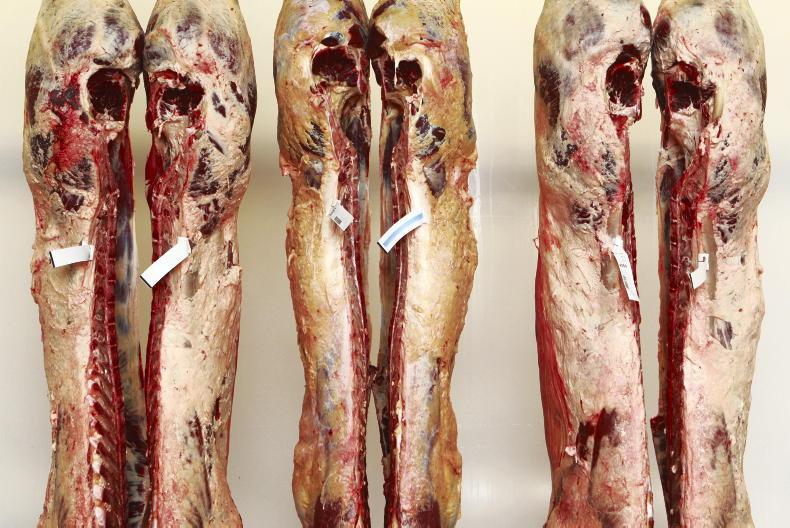
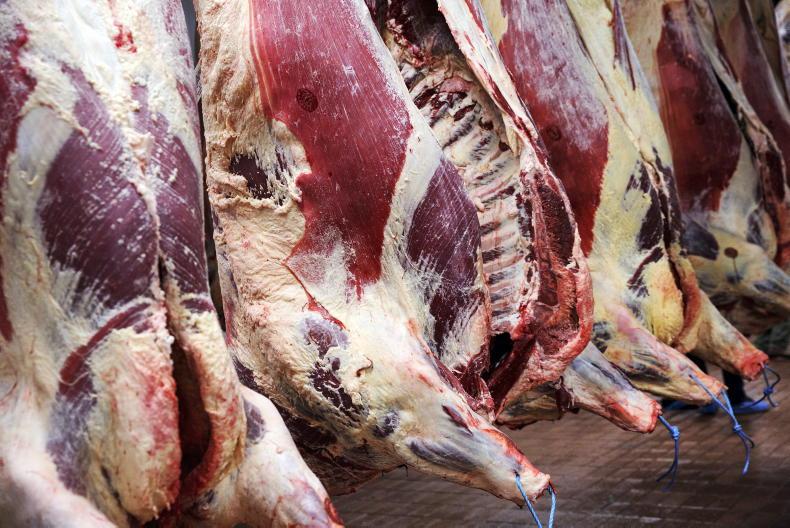

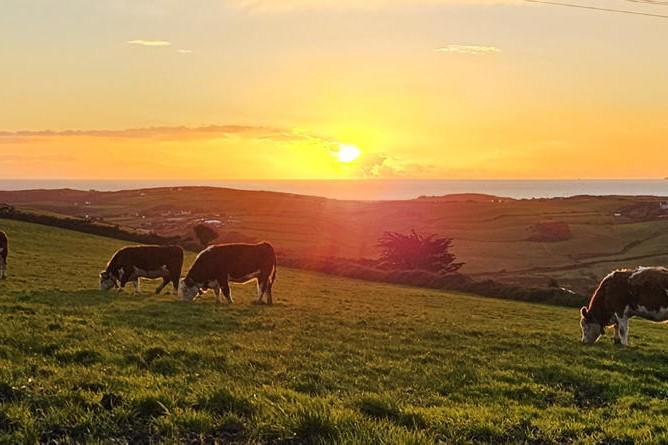
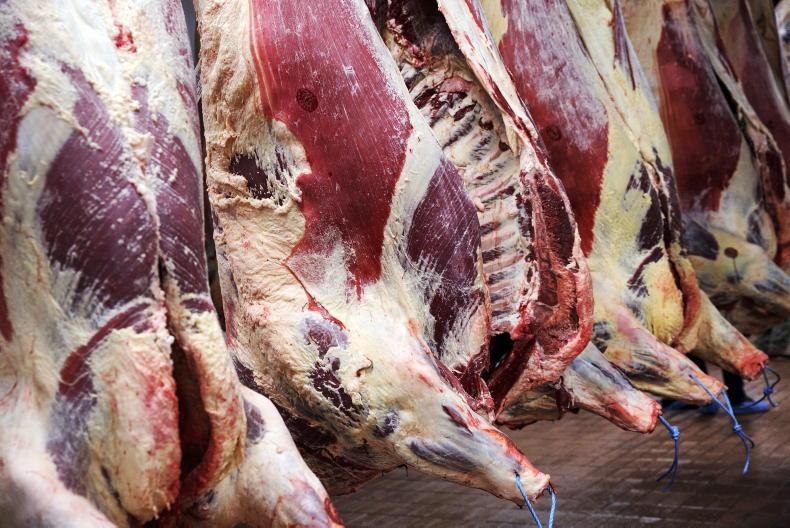
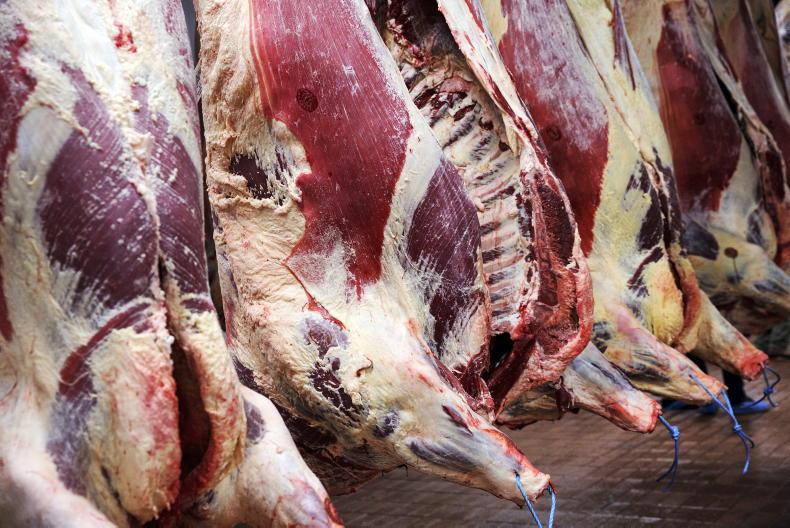
SHARING OPTIONS